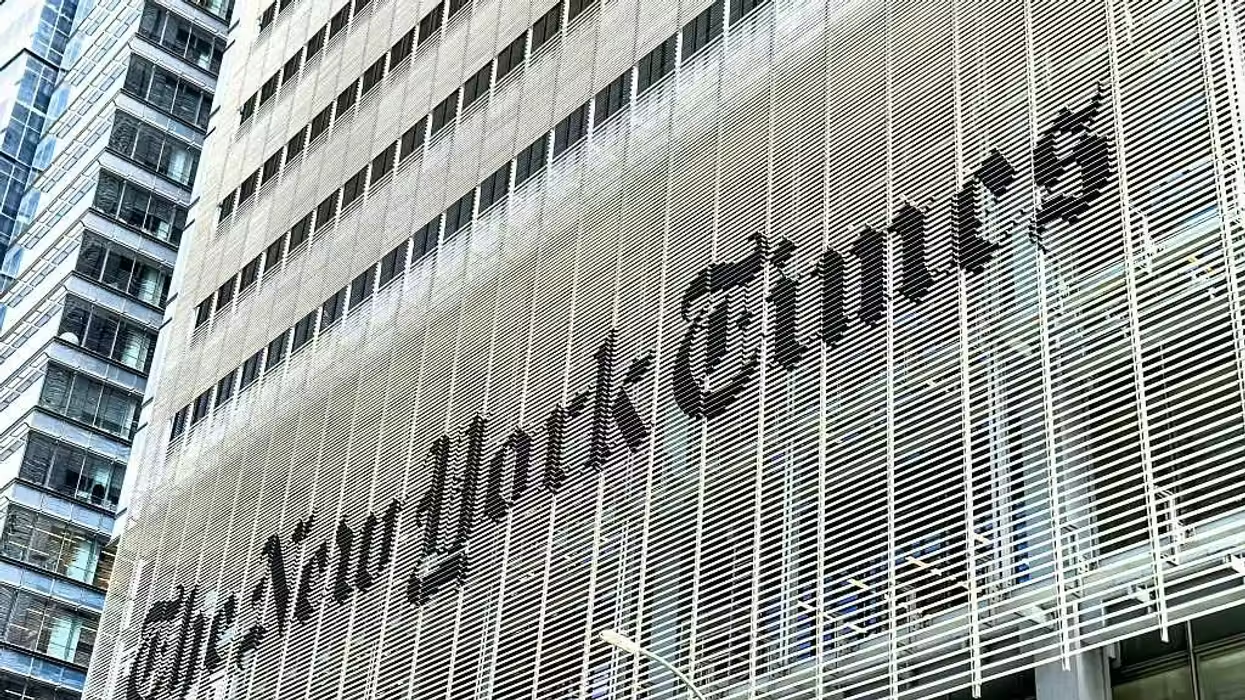
© 2026 Blaze Media LLC. All rights reserved.
It’s that time of year when we can look back and say, “Wow. These stocks were awful.”
It should not come as a surprise that many of these major market duds were from the financial sector.
The markets have been downright unpredictable since Q2 and things don’t look like they're going to stabilize anytime soon (especially as the eurozone crisis continues to fester).
"Financials are still weighing down large-caps as the sector reacted to every event" both domestically and internationally, said Howard Silverblatt, a senior index analyst at Standard & Poor, in a research note.
Here are some of the lousiest stocks from this year:
 Bank of America: BofA seems to make headlines every other week due to problems at the battered bank. After denying capital concerns, the bank sold its China Construction stake, raised $5 billion from Warren Buffett, and even tried to charge customers a monthly $5 debit fee [Editor’s note: that didn’t go over too well.]
Bank of America: BofA seems to make headlines every other week due to problems at the battered bank. After denying capital concerns, the bank sold its China Construction stake, raised $5 billion from Warren Buffett, and even tried to charge customers a monthly $5 debit fee [Editor’s note: that didn’t go over too well.]
Shares have gone down 60 percent this year to about $5. Their $56 billion market cap has been down 10 years with an average annual share price decline in that period of 5.4 percent
Last month, BofA moved up to $53 trillion in derivatives from its Merrill Lynch unit to a subsidiary flush with insured deposits. Translation: When the derivatives timer goes off, this is going to leave a mess for taxpayers.
 American International Group's: shares were down almost 64 percent to about $20. "The $38 billion market value company, which averted collapse three years ago during the financial crisis, thanks to a government bailout, is a much smaller company now and is focused primarily on its property-casualty and life-insurance businesses," writes TheStreet.
American International Group's: shares were down almost 64 percent to about $20. "The $38 billion market value company, which averted collapse three years ago during the financial crisis, thanks to a government bailout, is a much smaller company now and is focused primarily on its property-casualty and life-insurance businesses," writes TheStreet.
In Q3, AIG reported that its losses increased by 71 percent to $4.1 billion, driven by volatile markets and a decline in its main insurance businesses.
 First Solar: Yeah, these guys. Shares have dived 69 percent this year to $40, giving it a market value of $3 billion. Because it's a solar energy company, and therefore a pet project for the current administration, it relies heavily on government subsidies. Shares started a free fall around the same time CEO Robert Gillette abruptly resigned.
First Solar: Yeah, these guys. Shares have dived 69 percent this year to $40, giving it a market value of $3 billion. Because it's a solar energy company, and therefore a pet project for the current administration, it relies heavily on government subsidies. Shares started a free fall around the same time CEO Robert Gillette abruptly resigned.
Oh yeah, and don't forget that they also received about $3.1 billion in loan guarantees from the Department of Energy.
 NetFlix: As reported earlier on The Blaze: Netflix CEO Reed Hastings is likely to become an infamous case study.
NetFlix: As reported earlier on The Blaze: Netflix CEO Reed Hastings is likely to become an infamous case study.
His name is already being associated with lessons in how to kill a brand completely (if that‘s what you’re actually trying to do).
The trouble began when Netflix implemented price hikes that resulted in an enormous number of subscribers abandoning the brand.
Couple that with Hasting’s awkward blog apology and the announcement that they were going to separate services (only to change their minds later) and the end result has a downward spiral of their stocks into “bottoming-out” territory.
"Netflix recently reported that it expects a full-year net loss in 2012, worse than its earlier prediction of the same," TheStreet reports. "It also recently announced a $400 million stock and bond offering to capitalize on its digital expansion plans."
Of course, other stocks were ruined before the third quarter even ended.
 MF Global: Obviously, this company did not do well. Shares did not even make it to November. On Halloween, the futures broker filed for Chapter 11. Within a day, it was made aware that the company was not in compliance with the Commodity Futures Trading Commission in regards to customer segregation requirements.
MF Global: Obviously, this company did not do well. Shares did not even make it to November. On Halloween, the futures broker filed for Chapter 11. Within a day, it was made aware that the company was not in compliance with the Commodity Futures Trading Commission in regards to customer segregation requirements.
After refusing to disclose information to regulators, CEO Jon Corzine admitted to using client money as its financial troubles mounted. The former Goldman Sachs CEO managed to run MF Global into the ground after taking the reins of the company in March 2010.
Leverage not only gave birth to the housing and credit bubble, but also brought down MF Global as the firm and its CEO apparently learned nothing over the past few years.
“For every dollar of its own capital on its books, it had borrowed $40, a leverage even greater than that of Lehman Brothers at the time of its collapse,” said Eric Lewis, a specialist in international insolvency cases.
(Related: Would Warren Buffett Buy These 14 Stocks?)
 Eastman Kodak Co.: Shares have plummeted nearly 80 percent year-to-date. Investors have raised bankruptcy fears in recent months after the company tapped $160 million of its credit line.
Eastman Kodak Co.: Shares have plummeted nearly 80 percent year-to-date. Investors have raised bankruptcy fears in recent months after the company tapped $160 million of its credit line.
More recently, the company reported a $222 million (83 cents per share) loss for the third quarter, compared to a $43 million loss in the same quarter last year. The company has now missed analyst estimates for the last four quarters.
 American Airlines Corp.: Before eventually filing for bankruptcy, American Airlines' stock was down nearly 80 percent this year due to, well, bankruptcy rumors.
American Airlines Corp.: Before eventually filing for bankruptcy, American Airlines' stock was down nearly 80 percent this year due to, well, bankruptcy rumors.
In addition to the aforementioned rumors, the airliner was also struggling in negotiation talks with the pilots union.
"American says labor-contract rules force it to spend at least $600 million more than other airlines. That’s partly a result of AMR avoiding bankruptcy last decade, while airlines like United and Delta were able to scrap existing labor contracts after filing Chapter 11," writes The Blaze's Jon Seidl.
He continues:
Besides higher labor costs, American also struggled with rising jet fuel costs. Jet fuel cost an average of $3 per gallon so far this year – a record according to government data that goes back to 1990. Jet fuel is more expensive now than the average of $2.96 per gallon in 2008, when oil rose above $147 per barrel for the first time. It’s risen 56.4 percent in the past five years. The average price of jet fuel was $1.92 per gallon in 2006.American lost $162 million in the third quarter and has lost money in 14 of the last 16 quarters.
[Editor's note: portions of the above originally appeared on Wall St. Cheat Sheet.]
Want to leave a tip?
We answer to you. Help keep our content free of advertisers and big tech censorship by leaving a tip today.
Want to join the conversation?
Already a subscriber?
more stories
Sign up for the Blaze newsletter
By signing up, you agree to our Privacy Policy and Terms of Use, and agree to receive content that may sometimes include advertisements. You may opt out at any time.
Related Content
© 2026 Blaze Media LLC. All rights reserved.
Get the stories that matter most delivered directly to your inbox.
By signing up, you agree to our Privacy Policy and Terms of Use, and agree to receive content that may sometimes include advertisements. You may opt out at any time.






